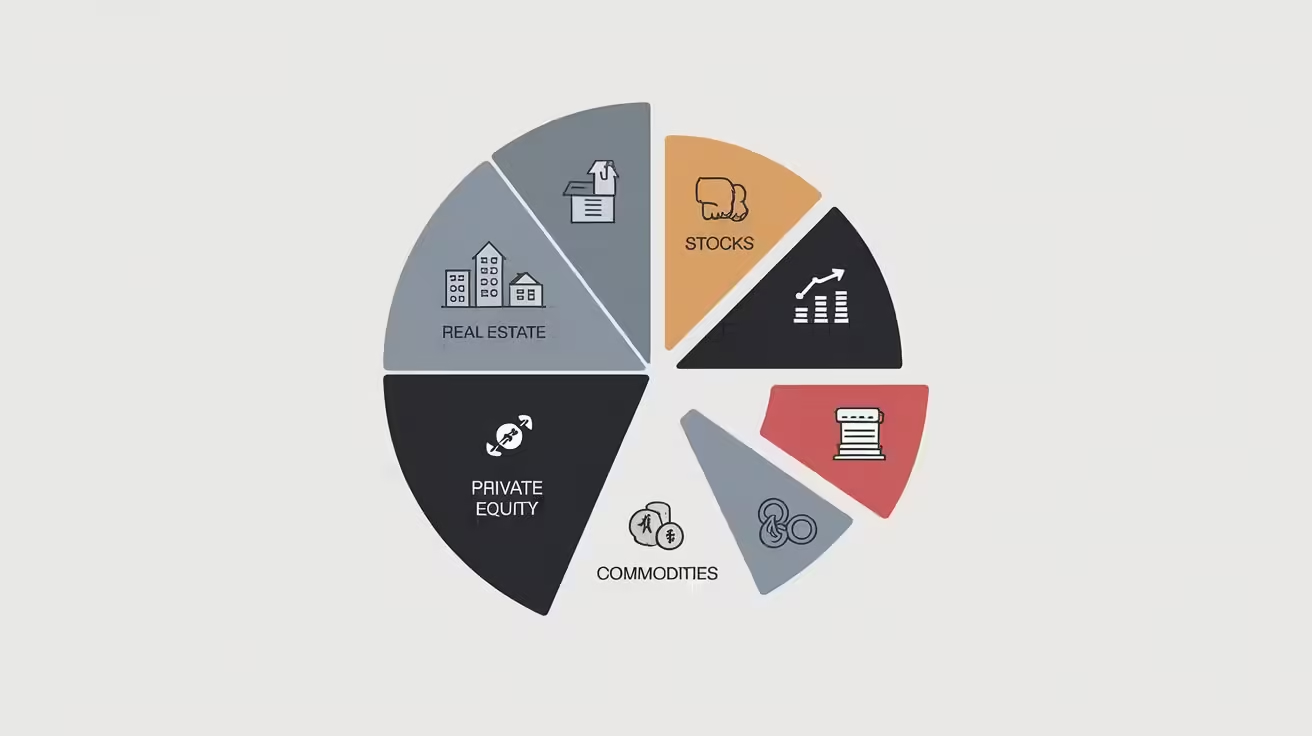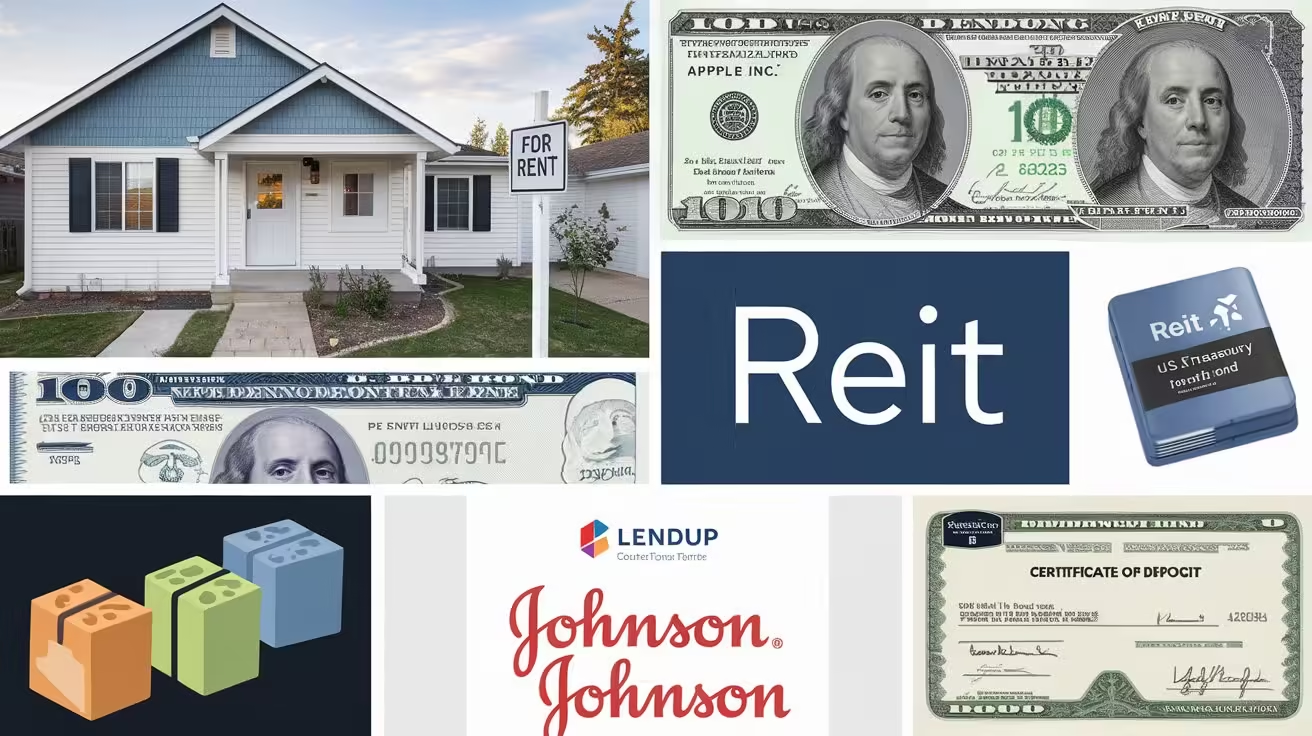The Best Assets That Produce Cash Flow: Unlocking Consistent Income Streams

In a world where financial stability is crucial, creating consistent income streams through cash flow-producing assets can pave the way to long-term wealth. Investing in cash flow assets allows you to generate regular income, enhance financial security, and take advantage of opportunities without constantly working for a paycheck. But with so many options available, how do you identify the best assets that produce cash flow?
This article will explore the top options that can generate recurring income, whether you’re a seasoned investor or just starting on your financial journey. We’ll examine traditional investments like real estate and dividend-paying stocks, as well as lesser-known opportunities like peer-to-peer lending and intellectual property. Each of these assets holds the potential to grow your wealth while providing a reliable cash flow.
What Are Cash Flow Producing Assets?
Before diving into the best assets that produce cash flow, it’s essential to understand what cash flow assets are. Cash flow is the movement of money in and out of your accounts. When it comes to investments, cash flow refers to the amount of cash generated regularly by an asset.
Unlike growth-focused investments that rely on capital appreciation (the increase in an asset’s value over time), cash flow-producing assets prioritize regular payouts. Whether through monthly rental income, quarterly dividends, or passive royalties, cash flow-producing assets provide investors with a steady stream of income. This makes them an excellent choice for individuals looking to supplement their income, achieve financial independence, or retire early.
Why Cash Flow is Essential for Financial Freedom
Financial freedom means having enough income from your investments to cover living expenses without relying on a traditional job. Cash flow-producing assets play a critical role in this process by generating regular, reliable income. As long as these assets are well-managed, they can continue producing revenue year after year.
With a focus on best assets that produce cash flow, you can reduce your dependency on earned income and achieve more financial flexibility. This financial independence allows you to reinvest profits, grow your portfolio, and take control of your financial future.

Real Estate: A Classic Cash Flow Asset
Real estate has long been hailed as one of the best assets that produce cash flow. Investing in property can provide both capital appreciation and consistent rental income, making it a popular choice for those seeking long-term wealth and immediate cash flow. Cap Calculator Real Estate Investment Radius: Master the 5 Key Factors
Residential Rental Properties
One of the most common ways to generate cash flow through real estate is by investing in rental properties. Whether it’s a single-family home, multi-family unit, or apartment complex, owning a rental property offers monthly income from tenants. Location, demand, and property management are key factors in maximizing the cash flow from rental properties.
Commercial Real Estate
Commercial properties, such as office buildings, warehouses, and retail spaces, can offer higher returns than residential real estate. Businesses typically sign long-term leases, providing consistent rental income over several years. Additionally, commercial leases often include provisions where tenants are responsible for property maintenance, reducing the owner’s operating costs.
Real Estate Investment Trusts (REITs)
For those who want exposure to real estate without the hassle of property management, Real Estate Investment Trusts (REITs) are an excellent option. REITs are companies that own and manage income-producing real estate. By purchasing shares of a REIT, investors can receive regular dividend payouts from the rental income and capital gains generated by the trust.
Dividend-Paying Stocks: Passive Income Through Equities
Investing in dividend-paying stocks is one of the most reliable ways to secure passive income. These stocks represent ownership in companies that regularly distribute a portion of their profits to shareholders. Choosing companies with a strong track record of paying dividends can lead to a dependable cash flow stream.
Blue-Chip Dividend Stocks
Blue-chip stocks are shares in large, financially sound companies that have a history of paying reliable dividends. Companies like Procter & Gamble, Coca-Cola, and Johnson & Johnson are examples of blue-chip stocks that consistently provide shareholders with steady income. Essential Property Management Tips for Success 101
Dividend Growth Stocks
Unlike high-yield dividend stocks, which prioritize immediate payouts, dividend growth stocks focus on companies with the potential to increase their dividends over time. These stocks can offer a balance of cash flow and capital appreciation. By reinvesting dividends, investors can compound their returns and build wealth over the long term.
Dividend ETFs
For diversification and ease of investment, dividend-focused exchange-traded funds (ETFs) are a great choice. These funds pool together a basket of dividend-paying stocks, providing investors with broad exposure to various sectors while generating regular income through dividends.

Peer-to-Peer Lending: Alternative Financing for Cash Flow
Peer-to-peer (P2P) lending is an innovative way to generate cash flow by providing loans to individuals or small businesses. P2P platforms like LendingClub or Prosper connect borrowers with lenders, allowing you to earn interest on the money you lend.
High Returns on Investment
One of the key benefits of P2P lending is the potential for high returns compared to traditional savings accounts or bonds. Borrowers typically repay loans in monthly installments, providing you with a steady cash flow.
Risk Management in P2P Lending
While P2P lending offers attractive returns, it comes with higher risks, as some borrowers may default on their loans. To mitigate this risk, investors can diversify by lending small amounts to multiple borrowers. Additionally, many platforms offer risk assessment tools to help you evaluate the creditworthiness of borrowers.
Rental Income from Equipment or Vehicles
Cash flow can come from more than just real estate or stocks. Renting out assets like vehicles, machinery, or even personal items is another way to generate steady income. This form of passive income can be especially lucrative for those who own high-demand equipment or vehicles. Private Lending Boom: Driving the US Housing Market 101
Vehicle Rentals
If you have an extra car, truck, or recreational vehicle, platforms like Turo or Getaround allow you to rent it out when you’re not using it. Renting out your vehicle can produce a reliable cash flow, especially in tourist-heavy areas or cities with limited transportation options.
Equipment Rentals
Businesses often need access to specialized equipment but don’t want the expense of purchasing it. By renting out items like construction machinery, camera gear, or power tools, you can create a profitable side income. The demand for rental equipment is high, especially in industries like construction, film production, and events.
Intellectual Property: Royalties for Long-Term Income
Intellectual property (IP), including patents, copyrights, and trademarks, is an underrated yet valuable source of cash flow. When properly managed, IP can generate royalties—regular payments made to the owner of the property for the use of their creation.
Publishing and Licensing
Authors, musicians, and software developers can earn passive income by licensing their work to others. Every time a book is sold, a song is played, or software is downloaded, the creator earns royalties. This ongoing revenue stream can last for years, especially if the work remains popular or widely distributed.
Franchise Royalties
If you’ve created a successful business model, franchising can be an excellent way to earn cash flow. Franchisees pay royalties to the franchisor in exchange for the right to use the business’s brand, systems, and products. This is a common model in industries like fast food, retail, and hospitality, where the franchisor benefits from a steady stream of income without being directly involved in day-to-day operations.
Business Ownership: Building Cash Flow from Operations
Starting or acquiring a business is a hands-on approach to generating cash flow. While running a business requires more active involvement than other forms of investment, it can also yield significant returns if managed properly. DSCR Loans: The Powerful Financing Tool for Real Estate Growth 101
Small Businesses
Owning a small business, such as a retail store, restaurant, or service-based company, provides regular cash flow through sales and services. By building a strong customer base and maintaining efficient operations, business owners can enjoy consistent revenue.
Online Businesses
With the rise of e-commerce, online businesses have become a popular way to generate cash flow. Whether through dropshipping, affiliate marketing, or selling digital products, online ventures offer the potential for passive income with low overhead costs.

Bonds: Fixed Income Investments
Bonds are fixed-income investments that pay regular interest to investors in exchange for lending money to governments, corporations, or municipalities. While bonds may not offer the high returns of stocks or real estate, they are considered one of the safest assets for generating cash flow.
Government Bonds
Government bonds, such as U.S. Treasury bonds, are backed by the government and are considered virtually risk-free. These bonds pay interest semi-annually and can provide stable income, especially for risk-averse investors looking for security.
Corporate Bonds
Corporate bonds offer higher yields than government bonds but come with additional risk, as companies may default on their debt. However, investing in bonds from established, financially stable companies can be a reliable way to generate cash flow while balancing risk and reward.
Diversify for Optimal Cash Flow
When seeking the best assets that produce cash flow, diversification is key. Relying on a single asset class can expose you to unnecessary risk, while diversifying across multiple assets can help ensure consistent income, even during economic downturns. By combining investments in real estate, dividend-paying stocks, P2P lending, intellectual property, and bonds, you can create a well-rounded portfolio that generates cash flow from multiple sources. For more information regarding Finance Basic you can visit FinancewithAi Channel & Home